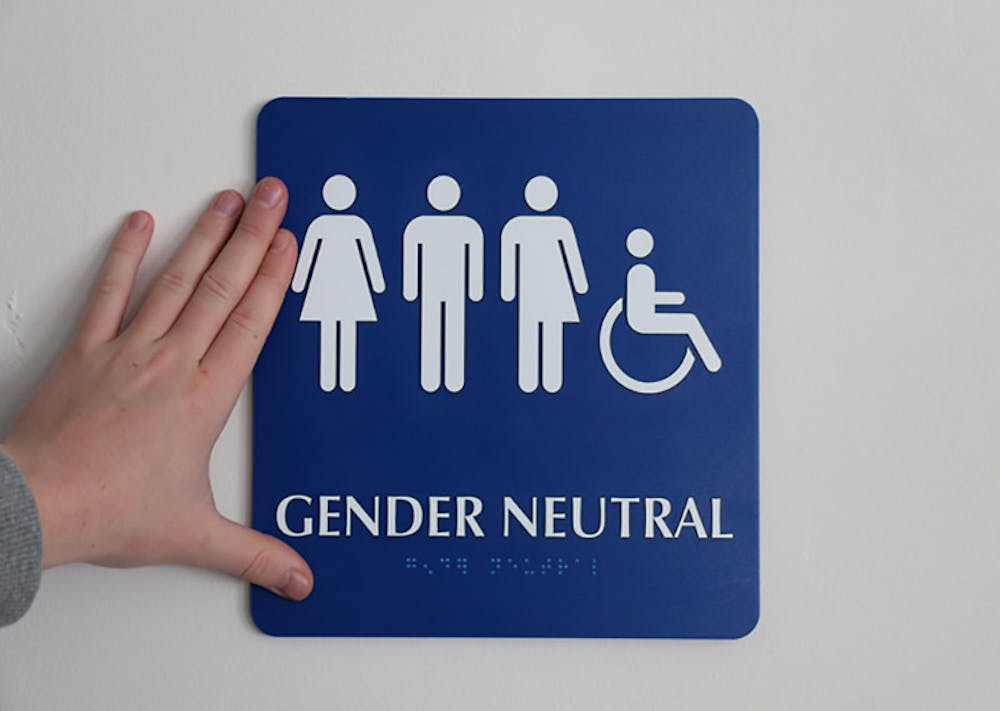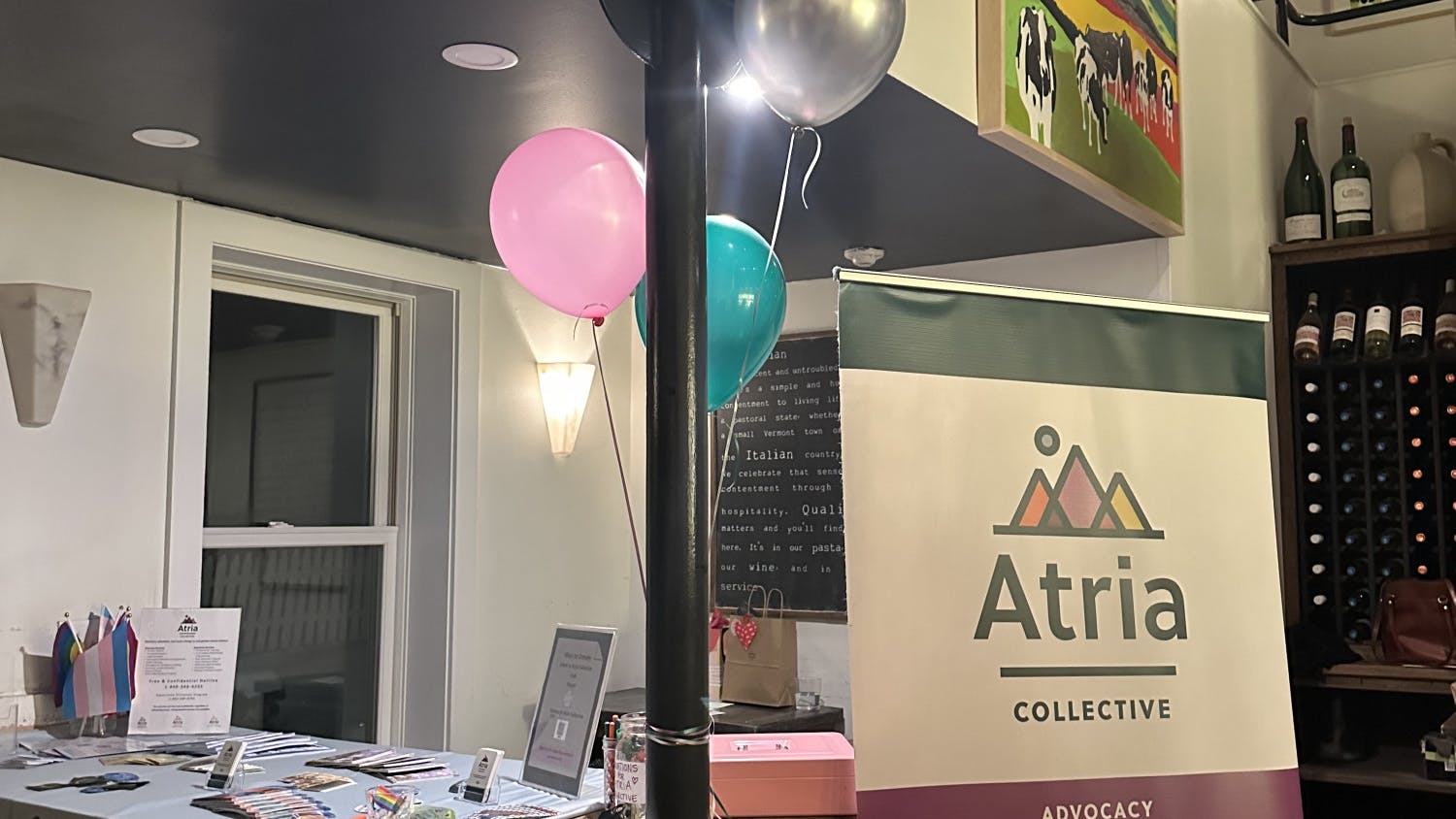MONTPELIER — In recent years, a movement towards inclusivity has begun the refamig of binaries regarding gender and sex to longer be based on those assigned at birth. The proliferation of these evolving ideas has turned the heads of scientists, lawmakers and others as they grapple with dismantling prior gender roles and assess the implications of these legal, medical and social changes in our society. While many institutions and governments have had difficulty accepting these advancements, certain Vermont lawmakers have acknowledged societal evolutions in order to stay abreast of social issues.
In its attempt to approve the initial H.333 bill that requires all single-occupancy bathrooms be “gender free,” the Green Mountain State aims to make public restrooms more inclusive to trans and gender-nonconforming individuals. While multi-stall bathrooms will remain gendered, their private bathroom counterparts will be labeled as gender neutral in schools, hospitals, places of worship, stores, workplaces and other public spaces.
With support from the House, the bill is on track to be approved by the end of the current legislative session. Senator Becca Balint of Windham District, who presented the bill on the Senate floor, sees its passing as a change that would “benefit many Vermonters as they seek to meet their most basic of human needs.” Balint’s claim acknowledges the frustration and fear that many LGBTQ+ community members feel in their everyday lives and especially when asked to choose from a gender binary.
Jacob Tobia, national LGBTQ+ rights activist, member of the transgender community and co-producer and host for the MSNBC show Queer 2.0, sees the adoption of gender neutral bathrooms as one that benefits the community and dissolves fears of physical or verbal violence. In the TIME Magazine article, “Why All Bathrooms Should Be Gender-Neutral,” Tobia writes, “Allowing trans students to ‘use the restroom that feels most comfortable to them’ assumes that a comfortable option exists in the first place.” Vermont officials’ support of gender-neutral bathrooms caters to Tobia’s call for the dissolution of traditional gender binaries with the goal of creating more comfortable and safer accommodations.
Senator Balint, the Vermont Senate’s Majority Leader, reinforced this bill with another avenue of persuasion. Rather than solely encouraging it in association with gender-nonconforming individuals, she extended the benefits of the bill to caregivers. Instead of caregivers forced into deciding which bathroom to use based on the sexual identification of the child or disabled person they are assisting in the restroom, they can use a gender-free private restroom without anxiety. Furthermore, Senator Balint argues that the creation of gender-neutral restrooms increases restroom accessibility for men and women waiting on long lines.
This bill would become official legislation on July 1 if approved by the Legislature and Governor Phil Scott. Currently, it must be reconsidered by the House because the Senate has made minor changes, mostly focused on plumbing protocols. Proposers of the bill emphasize that public places need not make structural changes to their bathrooms in order to comply with the bill—instead, only the signs must be changed to indicate gender-neutrality.
The passing of the House bill looks hopeful—with the House of Representatives approving an initial version of it with a vote of 123-19 and limited current opposition.
While some may view gender-neutral bathrooms as a radical step, Tobia emphasizes that colleges have widely adopted gender-free bathrooms. At Middlebury, there are 15 non-residential buildings that have gender-neutral restrooms. Middlebury posits in its statement on all-gender restrooms that, “Everyone has the right to meet their basic needs in a safe environment, without feeling threatened or intimidated… All-gender restrooms provide an opportunity for our community members to enter a restroom without being questioned or interrogated.”
The push for a more inclusive environment is not just found at Middlebury. In 2016, Yale University joined the more than 150 colleges who have endorsed all-gender bathrooms and have additionally permitted transgender individuals to use their preferred name on their diploma instead of their birth name.
While it seems that institutions across the country are encouraging changes that acknowledge the challenges gender nonconforming people experience, there are still opponents who disagree with such changes. A few years ago, a proposed Indiana law attempted to criminalize entering a public restroom that differs from that person’s “biological gender,” which is defined by “sex at birth.” The repercussions to violating this law could include a $5,000 fine and up to a year in jail. While seven other states have tried to impose similar laws in recent years, Vermont seems to be leading a progression of social change.
To opponents of the bill and gender-neutral bathrooms in gender, Brenda Churchill, a transgender resident of Bakersfield, VT, writes: “Remembering that this bill applies to everyone and hurts no one is what is most important. Vermont is a state that often has shown the rest of the United States where to go and how to get there.”




